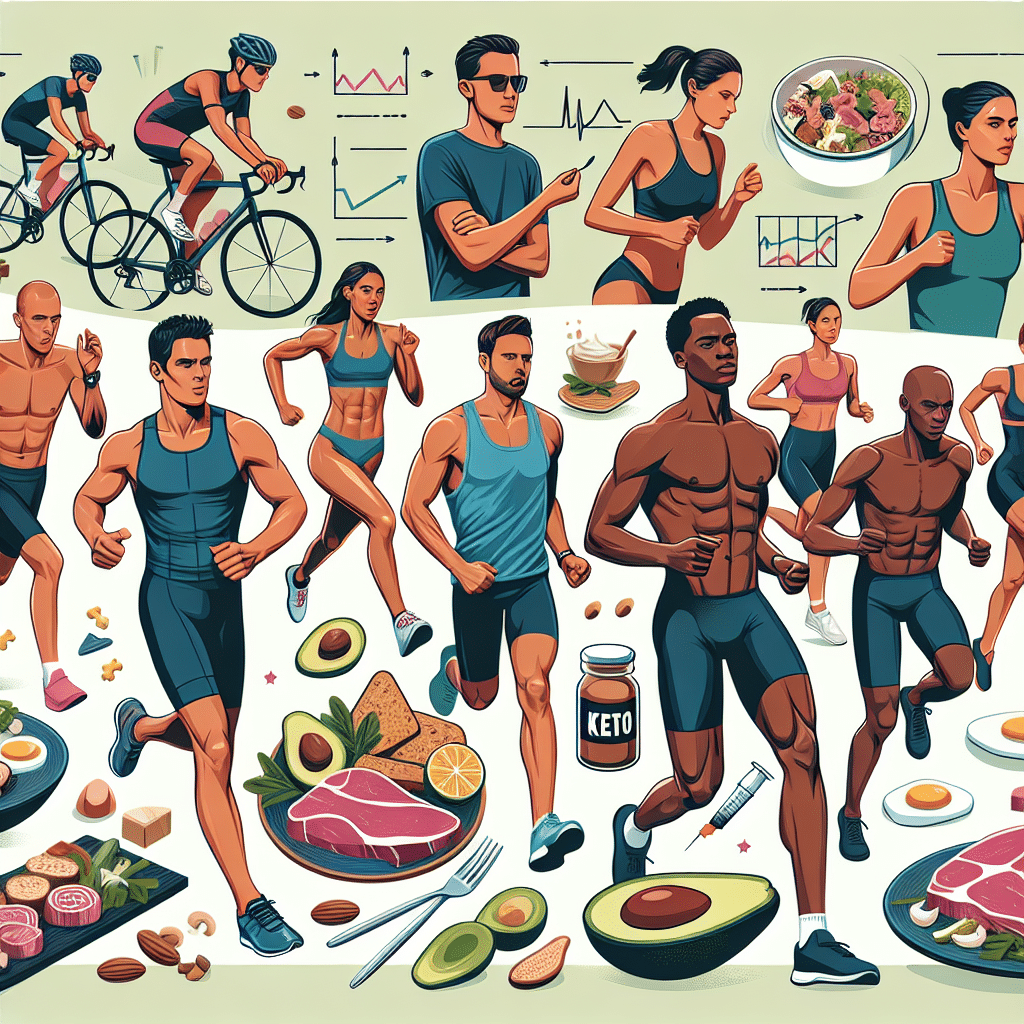Keto Diet and Endurance Athletes: Examining the Benefits
-
Table of Contents
- Keto Diet and Endurance Athletes: Exploring Potential Advantages
- Understanding the Keto Diet
- Keto Adaptation for Endurance Performance
- Benefits of Keto for Endurance Athletes
- Challenges and Considerations
- Research and Case Studies
- Conclusion: Weighing the Pros and Cons
- ETchem’s Protein Products for Keto Athletes
Keto Diet and Endurance Athletes: Exploring Potential Advantages

The ketogenic diet, commonly known as the keto diet, has gained significant attention in the realm of endurance sports. This high-fat, low-carbohydrate diet promises a shift in energy utilization, from relying on carbohydrates to burning fat as the primary fuel source. Endurance athletes, who traditionally depend on carbohydrates for sustained energy, are now exploring the keto diet’s potential benefits. This article delves into the keto diet’s role in endurance sports, examining its effects on performance, recovery, and overall health.
Understanding the Keto Diet
The ketogenic diet is characterized by a drastic reduction in carbohydrate intake, moderate protein consumption, and a high intake of fats. The goal is to enter a state of ketosis, where the body produces ketones from fat to use as energy instead of glucose from carbohydrates. This metabolic state can be achieved by consuming approximately 70-80% of calories from fat, 10-20% from protein, and 5-10% from carbohydrates.
Keto Adaptation for Endurance Performance
Endurance athletes are known for their high-carbohydrate diets, which fuel prolonged physical activity. However, the keto diet proposes an alternative energy source—fat, which is more abundant and could provide a steady energy supply. The adaptation process to efficiently utilize fat can take several weeks to months, during which athletes may experience a temporary decline in performance.
Benefits of Keto for Endurance Athletes
- Enhanced Fat Oxidation: By adapting to a ketogenic diet, athletes can increase their capacity to oxidize fat, potentially allowing for longer exercise duration without the need for frequent carbohydrate replenishment.
- Weight Management: The keto diet may aid in weight loss or maintenance due to its appetite-suppressing effects and the body’s increased fat-burning efficiency.
- Reduced Dependency on Carbohydrates: With a diminished need for carbohydrates, athletes may avoid the common issues associated with carb-loading, such as gastrointestinal discomfort.
- Stable Energy Levels: Ketones provide a consistent energy source that can prevent the energy fluctuations associated with carbohydrate intake.
Challenges and Considerations
Transitioning to a keto diet is not without its challenges. Athletes may experience the “keto flu,” a collection of symptoms including fatigue, headaches, and irritability during the initial adaptation phase. Additionally, there is a concern about nutrient deficiencies due to the restrictive nature of the diet. Careful planning and monitoring are essential to ensure adequate intake of vitamins, minerals, and fiber.
Research and Case Studies
Scientific studies on the keto diet’s impact on endurance performance have yielded mixed results. Some research suggests improved endurance capacity and body composition, while other studies show no significant benefits or even decreased performance. Anecdotal evidence from athletes who have successfully incorporated the keto diet into their training regimens provides a more personal perspective on its potential advantages.
Conclusion: Weighing the Pros and Cons
While the keto diet offers intriguing possibilities for endurance athletes, it is not a one-size-fits-all solution. The decision to adopt a ketogenic lifestyle should be based on individual goals, health status, and preferences. Athletes considering the keto diet should consult with a sports nutritionist to tailor the approach to their specific needs and monitor their progress.
ETchem’s Protein Products for Keto Athletes
For endurance athletes on a keto diet, protein intake is crucial for muscle repair and recovery. ETchem’s protein products, including their high-quality collagen offerings, can complement a ketogenic lifestyle by providing essential amino acids without excess carbohydrates. Their range of collagen products is suitable for various dietary preferences and can support the nutritional needs of keto-adapted athletes.
About ETChem:
ETChem, a reputable Chinese Collagen factory manufacturer and supplier, is renowned for producing, stocking, exporting, and delivering the highest quality collagens. They include marine collagen, fish collagen, bovine collagen, chicken collagen, type I collagen, type II collagen and type III collagen etc. Their offerings, characterized by a neutral taste, instant solubility attributes, cater to a diverse range of industries. They serve nutraceutical, pharmaceutical, cosmeceutical, veterinary, as well as food and beverage finished product distributors, traders, and manufacturers across Europe, USA, Canada, Australia, Thailand, Japan, Korea, Brazil, and Chile, among others.
ETChem specialization includes exporting and delivering tailor-made collagen powder and finished collagen nutritional supplements. Their extensive product range covers sectors like Food and Beverage, Sports Nutrition, Weight Management, Dietary Supplements, Health and Wellness Products, ensuring comprehensive solutions to meet all your protein needs.
As a trusted company by leading global food and beverage brands and Fortune 500 companies, ETChem reinforces China’s reputation in the global arena. For more information or to sample their products, please contact them and email karen(at)et-chem.com today.




